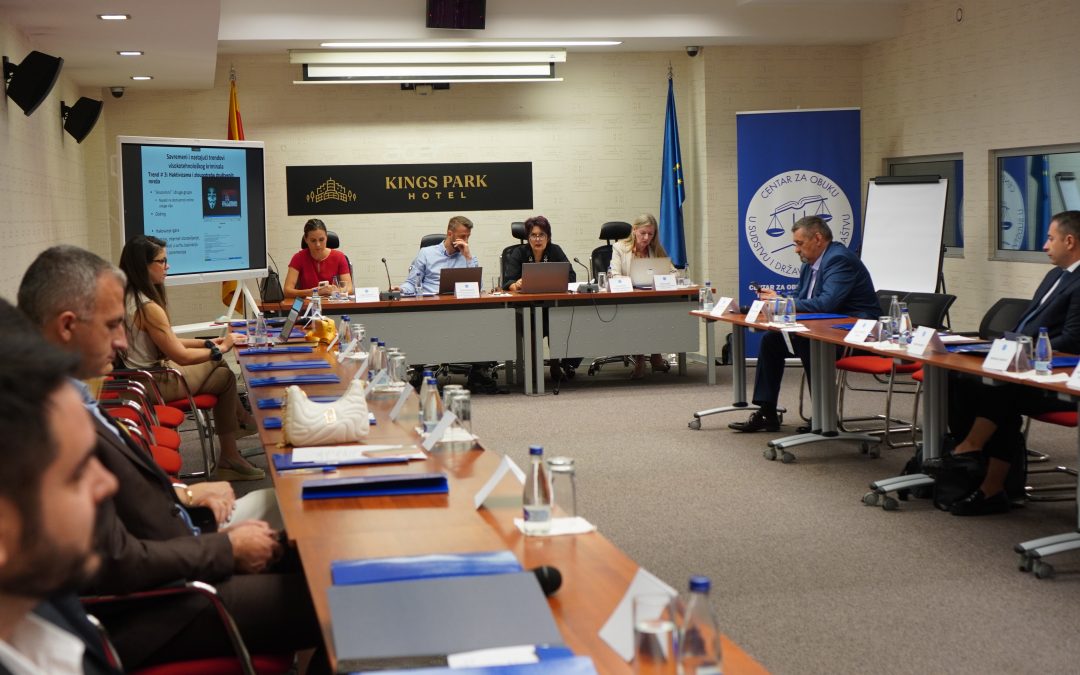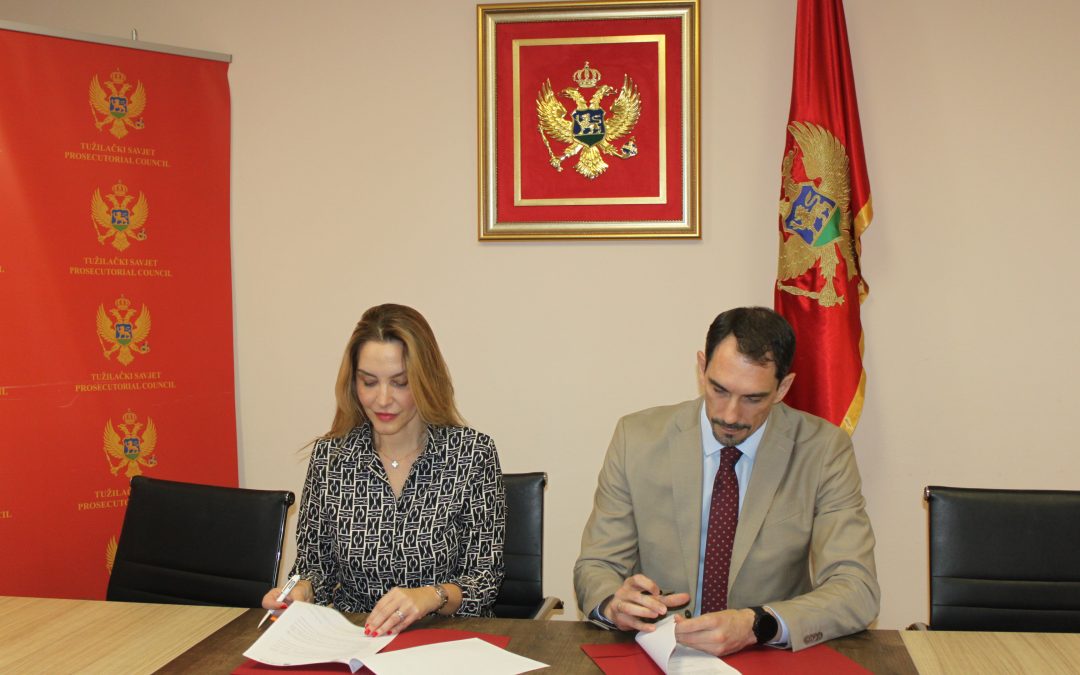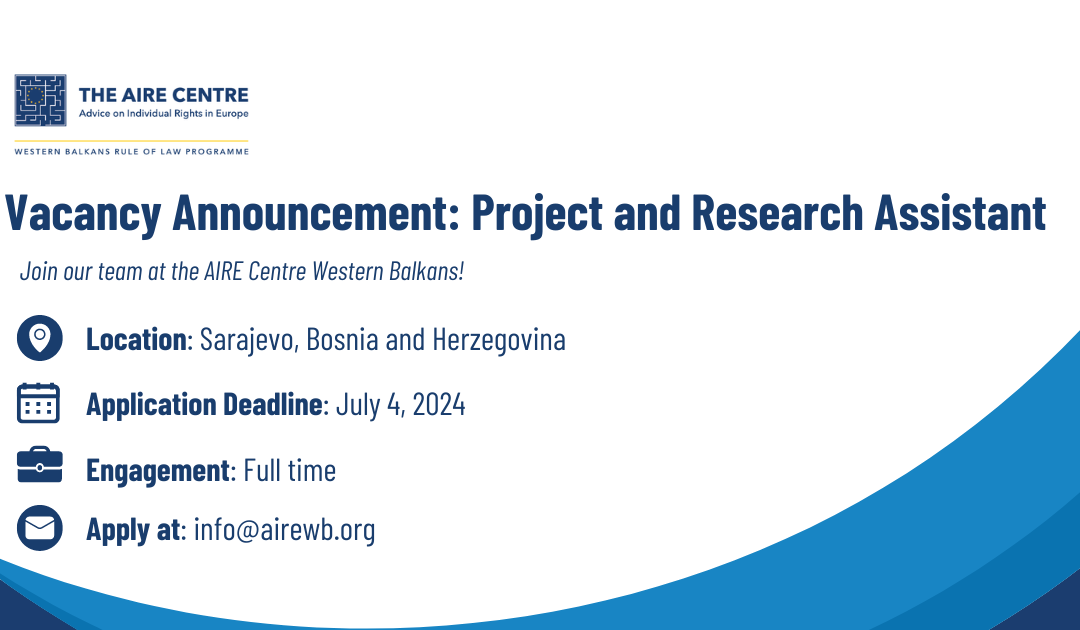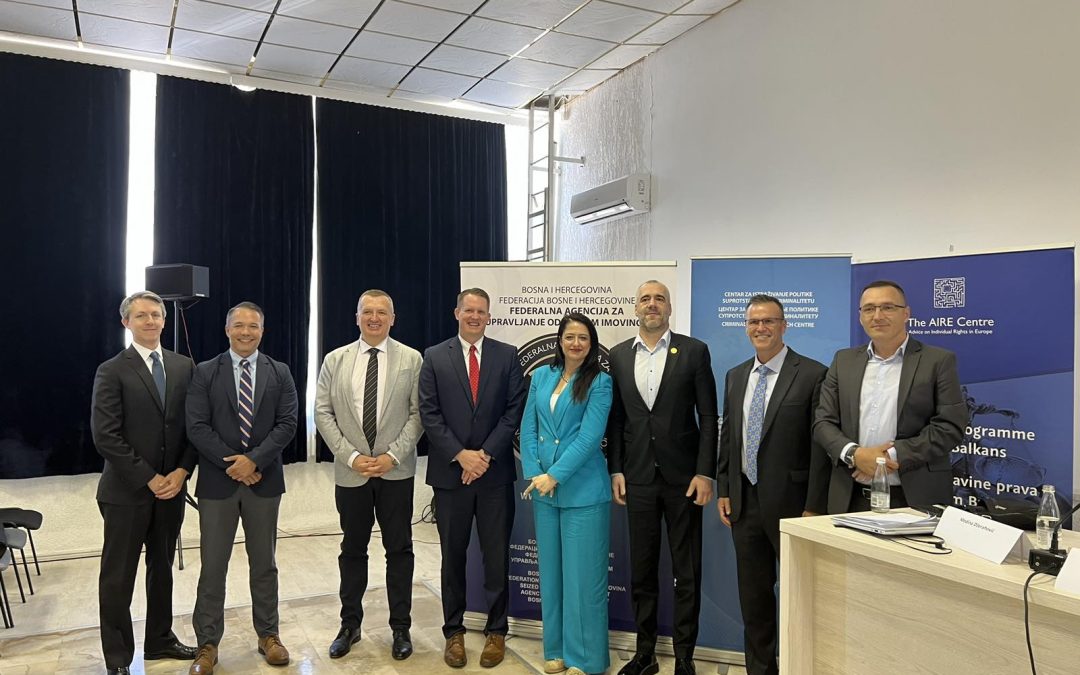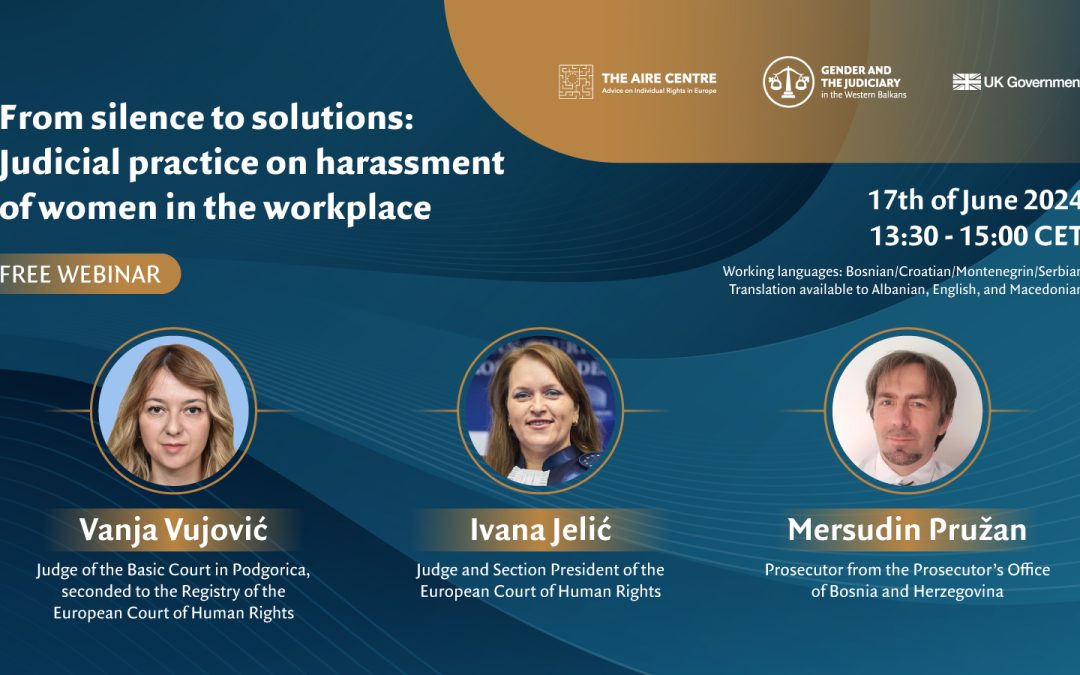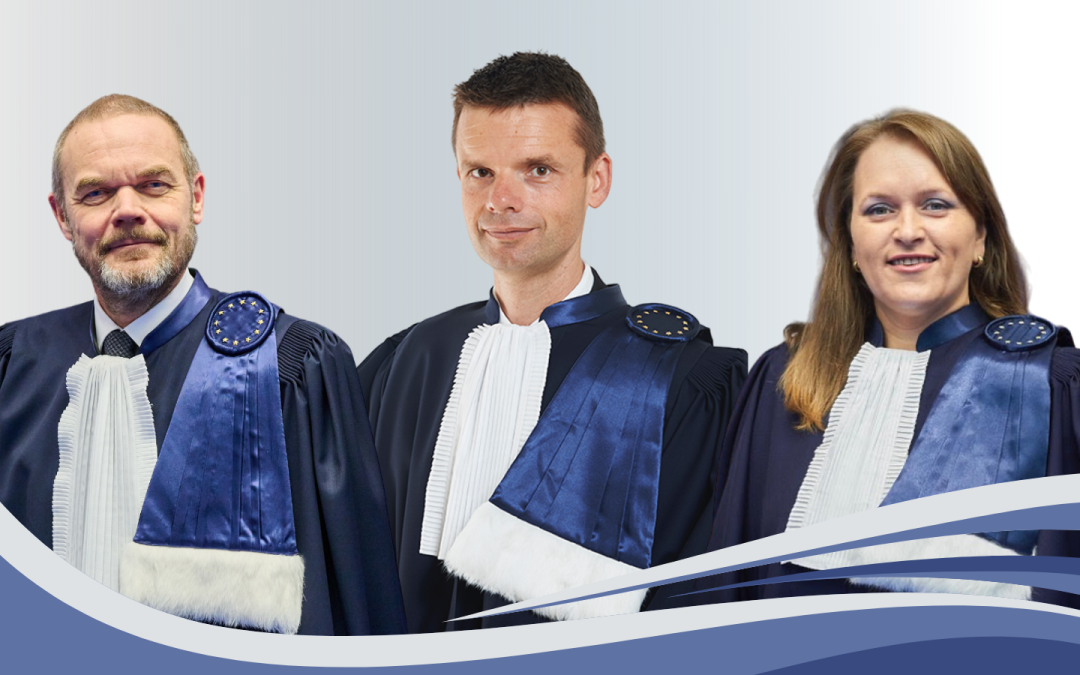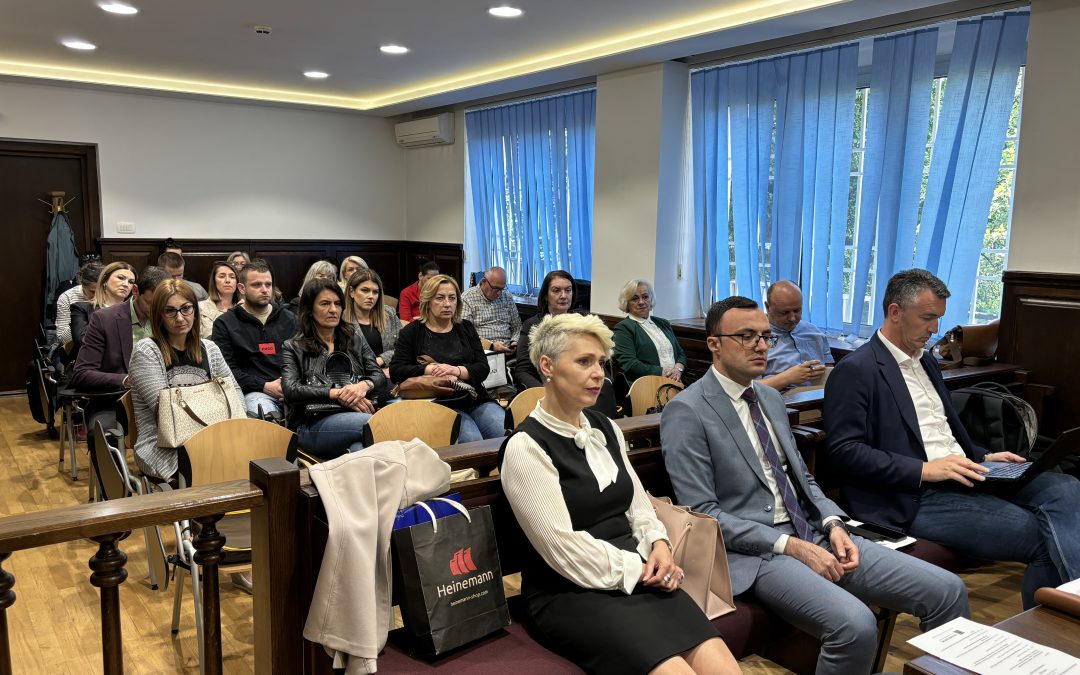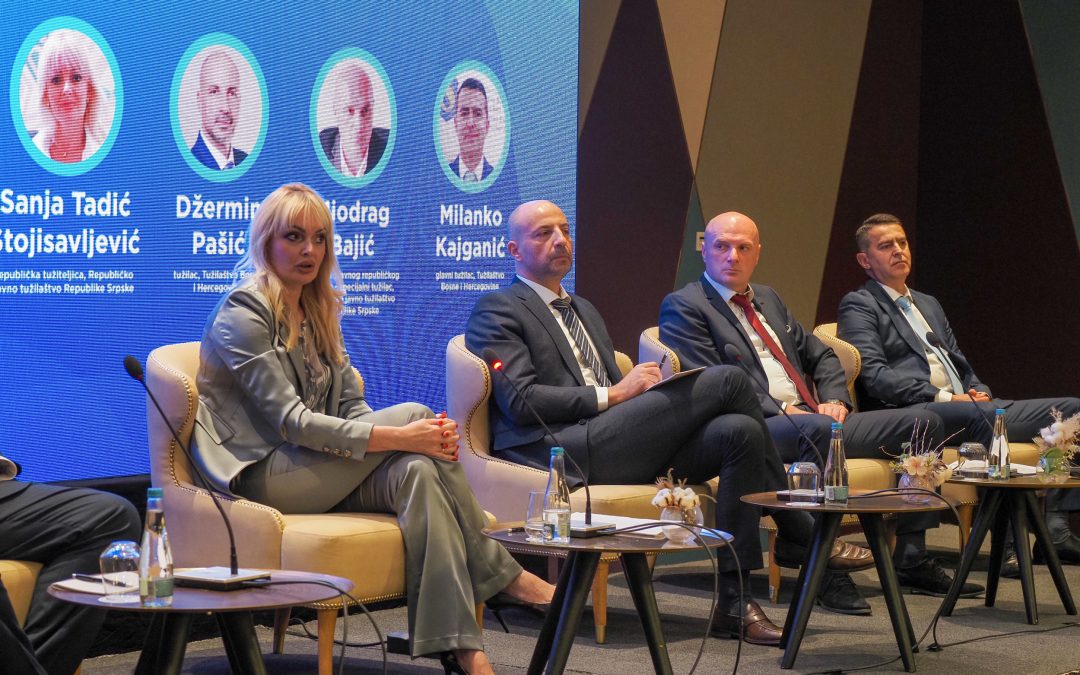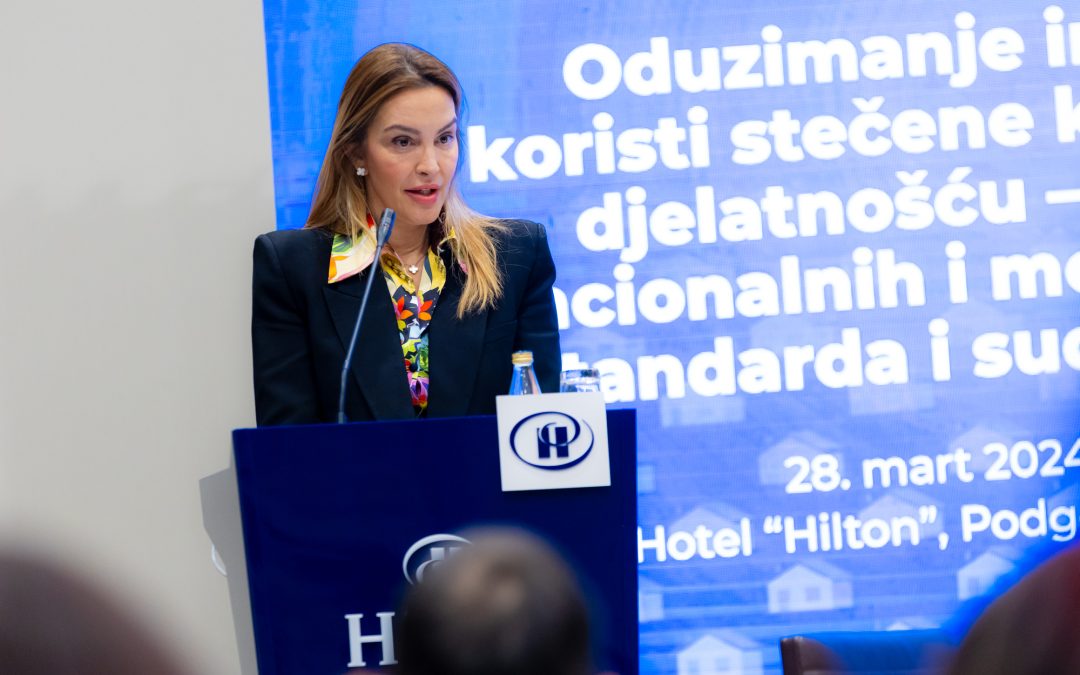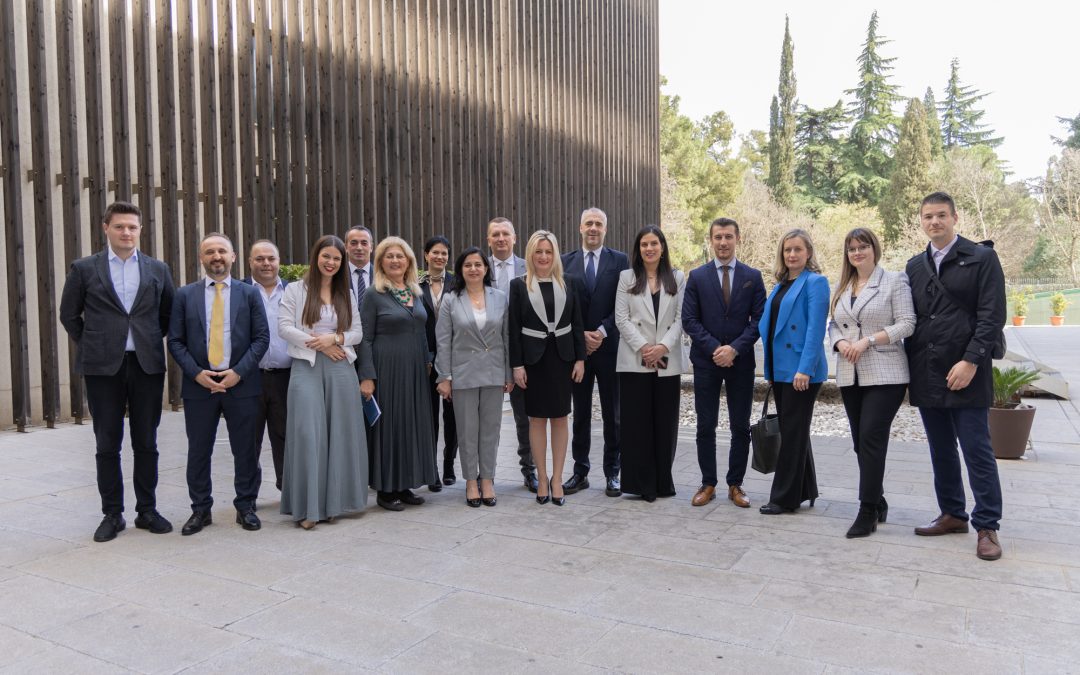The Western Balkans countries have good laws, but due to their ineffective implementation, women are still one of the most vulnerable categories in the region.
Over 100 key judicial actors from the region and beyond, including the president and judges of the European Court of Human Rights, presidents and judges of regional judicial and other state institutions, academics and non-governmental organisations, gathered today in Belgrade for the second regional judicial forum “Gender Equality and the Western Balkans” organised by the AIRE Centre, with the support of the Government of the United Kingdom, and in cooperation with the Commissioner for the Protection of Equality in Serbia and the non-governmental organisation FemPlatz. The goal of the Forum is to address the question of how the judiciary can effectively respond to different types of gender inequality and violence in the Western Balkans. The countries of the region mostly have comprehensive laws, but the large number of cases of gender-based violence and discrimination shows that the Western Balkans is still far from implementing the existing solutions in practice, which is why women are still a very vulnerable category, was concluded at the Forum.
“By casting light on the need to tackle bias, discrimination and even violence against women and girls in our societies, as the Gender Forum will do, we move closer to achieving gender equality. After all, you cannot change a reality without first having named and understood it. Progress depends not just on laws – although law is a powerful tool – but also on those who champion change and who seek to adapt traditions, attitudes and habits while developing and applying the law”, said Síofra O’Leary, President of the European Court of Human Rights at the opening of the Forum.
“Experts note that the countries of the Western Balkans have one of the best laws when it comes to the fight against discrimination and violence, and in addition they have adopted all the most important international standards for the protection of women’s rights. However, due to their ineffective implementation, women are still one of the most vulnerable categories of society. We are witnessing the violations of their rights, evident in a large number of cases of gender-based violence and femicides in the region. The data show that women are most often insecure within their own homes, and the abusers are, in most cases, those closest to them i.e., their family members or their partners. In addition, every new crisis, such as the global pandemic of COVID-19, leads to a new eruption of violence”, said Biljana Braithwaite, the AIRE Centre’s Western Balkans Programme Director.
“However, the violence we are witnessing is only a symptom of a larger problem this region is facing. Inequality is deeply rooted in the region, it is intertwined with every part of the public and private life of women in the Western Balkans. Gender-based violence and harassment, unequal access to education, discrimination at the workplace, underrepresentation in decision-making positions, and the fact that women still own less property than men, are problems that women face every day. This is the most important topic of the Forum, since the judiciary has the power to effectively punish discrimination and violence and deter such acts in the future”, explained Braithwaite.
“Gender-based violence threatens the lives and wellbeing of girls and women everywhere, preventing them from accessing opportunities that are fundamental to freedom and development: education, healthcare, and jobs. Advancing gender equality and ending gender-based violence is not only the right thing to do, but also a fundamental building block of all healthy democracies and economies. The focus of today’s Forum has been an important opportunity to develop our collective knowledge on accountability for gender-based violence, an important part of making the future safer for women and girls everywhere. The UK stands firm in our commitment to stand up for the rights of women and girls and demand justice for survivors of gender-based violence”, said Alicia Herbert OBE, Foreign Commonwealth and Development Office (FCDO) Director of Education, Gender and Equalities and the United Kingdom’s Special Envoy for Gender Equality.
The Commissioner for the Protection of Equality in Serbia, Brankica Janković, pointed out that the number of murders and gender-based violence against women in the entire region is highly concerning, which is why the second judicial forum “Gender Equality and the Western Balkans” is an extremely important event for regional dialogue on solving these problems.
“This Forum provides an opportunity for judicial and other relevant actors to exchange experiences and knowledge, with the ultimate goal of effectively combating family and partner violence. Timely recognition of violence and assessment of its level of danger, effective exchange of information between relevant institutions, and implementation of measures aimed at empowering and ensuring the safety of women are vital aspects in addressing the issue of gender-based violence, which are just as important as prosecuting and sanctioning the perpetrators”, said Janković.
One of the main topics of this year’s Forum is an efficient judicial response to femicide and other cases of gender-based violence in the region, and judges and other experts will discuss the best practices related to the investigation, prosecution, and punishment of these crimes. In addition, the Regional Report on the response of the judiciary to femicide in the Western Balkans will be presented as part of the Forum.
“Femicide, respectively, the gender-based murdering of women, is a phenomenon that is present and widespread in all countries, but it is not talked about enough about this most serious form of violence against women, especially in judicial circles. Research of judicial practice concerning femicide in all countries, in addition to certain differences and specificities for each country, showed many similarities, which is why this Forum is an opportunity to discuss the recommendations given in the report with judges from all countries, including the entire procedure, from the proper qualification of the criminal offence to the adjudication and punishment”, said Kosana Beker, program director of the non-governmental organisation FemPlatz and the author of this report.
The countries of the Western Balkans share similar problems when it comes to the fight for gender equality. Therefore, AIRE Centre, with the support of the Government of the United Kingdom, established the Gender Champions in Judiciary Network.
“Violence against women is a pervasive and egregious human rights violation. It is endemic, a constant presence in our communities. The judicial system is a fundamental component of justice and accountability for crimes perpetrated against women. However, for it to be effective, all participants must have the knowledge and tools to understand the underlying societal patterns of gender-based violence and its origins. The Forum is an important part of our efforts in this regard”, said Robert Spano, President of the Board of Patrons of Gender Champions in Judiciary Network, and former President of the European Court of Human Rights.
Today, the network gathers over 60 judges from the region, and its next steps will be discussed on the second day of the Forum. The primary mission of this Network is to improve the skills, knowledge, and practice of the judiciary in relation to gender equality and gender stereotypes, to encourage the efficient application of domestic, European, and international legal instruments, and the professional and personal development of female judges in the region.
